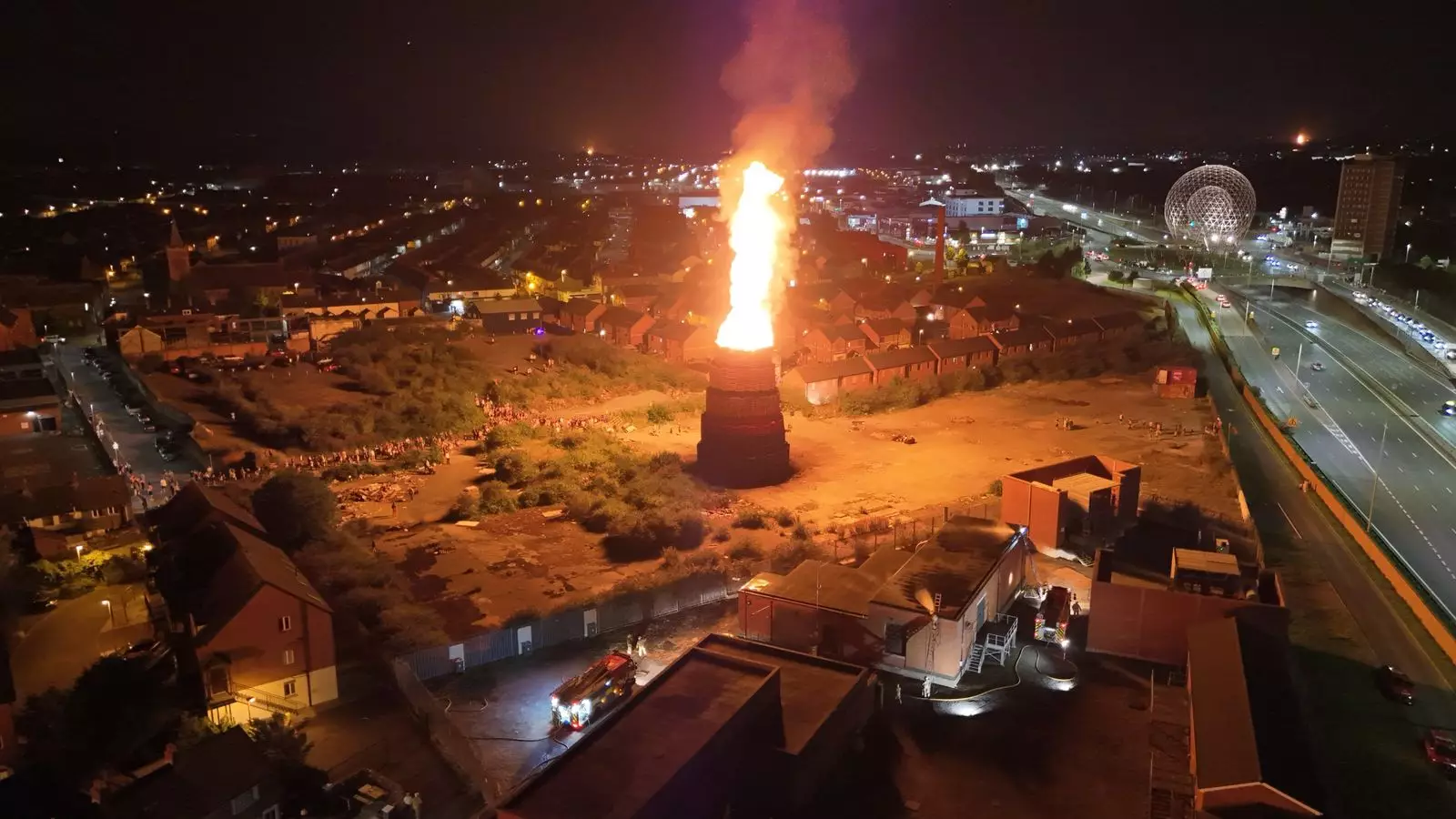As Northern Ireland braces for its annual July 12 festivities, the debate surrounding the fire-lit celebrations reveals a complex tension between cultural identity and societal responsibility. While many see the bonfires as a proud expression of protestant heritage rooted in centuries-old tradition, recent incidents exemplify how these displays can transcend harmless commemoration and venture into dangerous territory. The lighting of bonfires containing asbestos and near vital infrastructure underscores a troubling disregard for community safety and environmental integrity. Such acts are not simply rebellious festivities; they are reckless endangerments that threaten lives, undermine environmental justice, and call into question the very respect we owe to public health and communal well-being.
The fact that hundreds of bonfires are lit across the region, often under challenging conditions and political pressure, should prompt us to examine the morality of continuing these practices. Celebrating a historic victory at the expense of safety and environmental standards is a misguided display of tradition that risks trivializing the collective responsibility we hold toward each other. The argument that these rituals are part of cultural heritage becomes hollow when they impose significant health hazards, especially when involving toxic materials like asbestos at a site adjacent to hospitals and power stations—critical infrastructure whose safe operation is essential to daily life.
Government and Community Responsibility in Question
The recent events involving illegal and unsafe bonfire setups detract from the legitimacy of local authorities’ attempts to regulate and promote community safety. The failure to prevent the lighting of a bonfire containing asbestos, despite warnings, demonstrates a glaring gap in governance and oversight. Political leaders who publicly oppose such activities face the uncomfortable reality that their authority is challenged not only by community tradition but also by outright defiance fueled by cultural identity and political tensions.
Moreover, the spectacle of effigies depicting provocative symbols or messages, such as the “Kill Your Local Kneecap” poster, reveals how incendiary displays are often less about cultural commemoration and more about deliberate provocation or expression of dissent, which can escalate tensions rather than foster understanding. These acts might appear to be expressions of group identity but, in reality, serve to deepen divisions within a plural society. Such provocative displays undermine efforts toward community cohesion and exacerbate existing divisions, especially when combined with the burning of migrant effigies — an act that offends basic notions of respect and dignity.
Environmental and Social Consequences
Beyond the immediate safety concerns, the environmental ramifications of these bonfires are often overlooked. The incineration of toxic materials like asbestos on open flames releases hazardous fumes directly into the air, posing serious health risks for residents, particularly vulnerable populations like children, the elderly, and those with respiratory issues. The damage done is not only localized; it contributes to broader environmental degradation, which clashes starkly with the growing global emphasis on sustainability and public health.
Furthermore, the social fabric of Northern Ireland is strained as these events often catalyze violence, public disorder, and police interventions that cost taxpayers millions of pounds and strain community relations. The deployment of thousands of police officers to manage tensions underscores how these celebrations, intended to uphold tradition, frequently lead to chaos, minority marginalization, and misunderstandings. The very community bonds such occasions aim to reinforce are often frayed further after these disruptive and contentious displays.
Reevaluating Cultural Traditions in a Modern Society
It is undeniable that the bonfires are part of a deep-rooted cultural fabric, but that does not justify their perpetuation in a way that endangers others or undermines social progress. Societies evolve, and so must their expressions of identity and history. If a tradition cannot be practiced responsibly, it loses its moral standing. Celebrating cultural heritage should not come at the expense of safety, environmental sustainability, or social harmony—in particular in a society as fractured and historically sensitive as Northern Ireland.
Leaders and community organizations have a moral obligation to foster traditions that adapt to contemporary standards of safety and respect for human rights. This means discouraging practices that involve toxic materials, promote provocative imagery, or threaten community stability. Celebrating history does not necessitate the destruction of public spaces or the compromise of safety standards. Instead, it demands innovative and inclusive ways to remember and honor the past—ways that unite rather than divide, and that reflect our collective commitment to a safer, more respectful society.
If Northern Ireland’s bonfire night remains a spectacle of disregard for public health and social cohesion, it risks becoming nothing more than a symbol of unchecked tradition overshadowed by recklessness. Reform is not only desirable but imperative for the preservation of community safety, environmental integrity, and mutual respect in a society striving for progress amid enduring divisions.

Leave a Reply